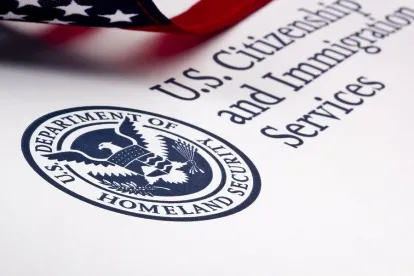Effective upon publication by the Federal Register on Wednesday, July 19, 2017, the Department of Homeland Security (DHS) has authorized the one-time issuance of an additional 15,000 H-2B visas for Temporary Nonagricultural Workers through September 30, 2017. The annual H-2B cap, previously set by Congress at 66,000, had come under fire as being woefully deficient to help American businesses meet their temporary seasonal or short-term surge employment needs. This would include “seasonal workers” such as hotel maids or restaurant workers at summer resort areas such as Cape Cod or the Hamptons. For FY 2017, which expires on September 30, 2017, USCIS received sufficient H-2B petitions to meet the full statutory cap of 66,000 visas on March 13, 2017. In response to numerous reports of such businesses suffering substantial economic hardship due to labor shortages, USCIS, with Department of Labor assistance, is implementing this one-time increase in H-2B visas.
Working with the Secretary of Labor, Secretary of Homeland Security John Kelly authorized the issuance of an additional 15,000 H-2B visas for the remainder of FY 2017 to be given to U.S. businesses that would “suffer irreparable harm” because of the lack of available temporary nonagricultural workers. To qualify for these additional visas, U.S. employers must attest to, under the pains and penalties of perjury, that their business “is likely to suffer irreparable harm if it cannot employ H-2B nonimmigrant workers through September 30, 2017.”
We would usually cheer when we hear that an additional 15,000 temporary work visas will become available in a given fiscal year. But how helpful will these additional visas be to eliminate the current shortage of H-2B nonagricultural workers in FY 2017?
-
A portion of the businesses that have been complaining about the shortage of H-2B visas consists of businesses that thrive during the summer season in resort areas or by the shore. The summer season will be over in little more than a month. In fact, there are children who have to return to school as early as August 10th or 11th. It does not appear that there is sufficient time to process these visas to help any businesses that are tied to the “summer season.”
-
Similarly, FY 2017 will be ending September 30, 2017, approximately 2 ½ months from now. H-2B petitions require an approved mini labor certification demonstrating the unavailability of U.S. workers for the subject position(s). Given this time frame, is it worthwhile to sponsor an H-2B worker for the short time remaining?
How many companies will actually be eligible for these additional visas if the U.S. employer must attest to and demonstrate “irreparable harm” to their business if they cannot employ H-2B workers in FY 2017?
-
Does “irreparable harm” mean that the U.S. employer must demonstrate that his/her business will be forced to close if H-2B workers cannot be employed during FY2017? Or does it mean that revenues will suffer?
Secretary of Homeland Security John Kelly still has to provide more information as to the eligibility criteria for these visas. Is this another example of providing “too little, too late”?




 />i
/>i

